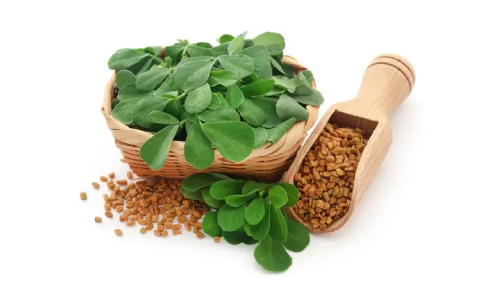Ever heard of podikizhi – the little pouch of healing in Ayurveda? Let’s talk about it! Have you ever felt muscle pain after a long day? Or maybe those pesky leg cramps just won’t let you relax? If so, you’re not alone! Most people experience pain due to muscular discomfort. While there are several solutions out in the market, Ayurveda has something unique known as ‘podikizhi’. Podikizhi, also known as Churna Pinda Sweda is a part of Swedana or sudation therapy in Ayurveda that is commonly used for pain relief and improving circulation. Ancient Ayurvedic texts mention the therapy as follows: स्वेदनं नाम संतापः स्तम्भगौरवशूलनुत्।। Charak Samhita, sutrasthanam 14/59 Translation: Swedana (sudation therapy) is the process of generating heat in the body, which helps in relieving stiffness, heaviness, and pain. संसृष्टं तण्डुलैः पुष्पैर्गोधूमैश्च सुशोधितैः। पीडितं स्विन्नदेहस्य पिण्डस्वेदनमुच्यते।। Sushruta Samhita, sutrasthanam 35/27 Translation: Pinda Sweda is a therapy in which a bolus (pouch) filled with various medicinal substances like grains, flowers, and purified herbs is applied to the body after heating. What is Podikizhi? Podikzhi (herbal powder poultice) is an Ayurvedic body treatment that helps reduce pain and inflammation. The name “podikizhi” comes from two words: “Podi,” meaning “powder,” and “Kizhi,” meaning “bag” or “pouch.” So, podikizhi essentially refers to a “pouch of herbal powder.” This therapy involves using a cloth tied into a bolus filled with herbal powders, which is then heated and applied to the body for therapeutic benefits. It’s a traditional Ayurvedic practice aimed at detoxification, pain relief and rejuvenation. At our hospital, podikizhi massage is done after an Abhyanga or oil massage with our Pain Oil. After Abhyanga, podikizhi is massaged over the body, typically in regions of pain and stiffness. The heat produced by the herbal powder opens up the skin pores and enables the herbs to reach into muscles and tissues where it expedites healing. Since podikizhi is mainly aimed at fixing Vata-related issues, it is highly effective in treating muscle stiffness, joint pain and inflammation. It is great for patients suffering from conditions, like Osteoarthritis, Polyarthralgia (pain in multiple joints), Cervical and lumbar spondylosis, Arthritis ( after swelling has subsided), obesity (reduces cellulite), Sciatica and muscular pain and weakness. Think of it as a warm, herbal pillow that gives your tired muscles a big, cozy hug and soothes them! Benefits of Podikizhi Podikizhi has the following benefits: Pain relief One of the primary reasons people do podikizhi is to get relief from pain. From back pain and muscle soreness to leg cramps, this therapy helps to alleviate discomfort by relaxing tense muscles. Detoxification The herbs used in Podikizhi help in throwing toxins away from the muscles which leads to better health and higher energy levels. Unwinding Everyone loves a massage, right? The heat with the gentle massage relaxes the muscles, destresses your mind and you feel completely taken to a different world of relaxation. Better circulation The heat and massage help to increase blood circulation in the muscles. Better circulation leads to more oxygen and nutrients being delivered to your muscles for quicker recovery. Rejuvenation After a Podikizhi session, many people report feeling rejuvenated. It’s a great way to unwind and recharge after a long week. Improved sleep quality Did you know that podikizhi can also help with better sleep? The deep relaxation provided by this therapy calms the nervous system and helps people with insomnia or restless sleep. Many people feel sleepy and super relaxed after a podikizhi session! How is Podikizhi Done? Here’s a step-by-step procedure to carry out a podikizhi procedure: Selection of herbs Herbs with inflammatory and healing properties are blended in the form of a powder. These herbs have long been used in traditional Ayurveda. Preparing the herbal pouch The powdered herbs are then placed in a cloth and tied to make a bolus. Heating the pouch: The pouch is heated in medicated oil or hot water. Alternatively, it can be dry heated as well on a hot iron griddle. Massage: The therapist massages the heated pouch on your affected part. The heat gets deep down into your muscles, taking away aches and stiffness. Post treatment: Following your treatment, you might be instructed to rest and drink water to assist with detoxification. Diseases Treated with Podikizhi Podikizhi is useful in the following conditions: Muscle pain: If you experience muscle pain due to exercise, poor posture or everyday activities, podikizhi can provide effective relief. Flexibility: If you have issues with flexibility in your joints and muscles, this therapy can help relieve that tension. Leg cramps and muscle spasms: Regular sessions can lessen the frequency and severity of leg cramps and muscle spasms. Back pain: It is a boon for people who suffer from back pain, it can provide significant relief without doing any harm as well as improve their flexibility. Herbs used in Podikizhi Herbs are used in the right amounts to make a potent herbal powder to render the best effect. Common herbs used in this treatment are: Turmeric: A powerful anti-inflammatory herb, turmeric reduces pain and swelling. Ginger: One more strong characteristic of an anti-inflammatory herb, ginger increases blood circulation and relaxes muscles. Fenugreek: Fenugreek is known for reducing muscle spasms and its capabilities in detoxifying. Garlic: Known as a potent pain reliever and antibacterial herb, Garlic beats even the modern OTC pain killers. The combination of these herbs in the podikizhi treatment acts as a powerhouse of healing and relaxation. Can You Do Podikizhi at Home? Well yes! Ideally for podikizhi, you should visit an Ayurvedic therapist, but you could do a simplified version at home as well. If you plan to do it at home, you’ll have to purchase the Podikizhi from a… Continue reading Podikizhi: Ayurveda’s Answer to Pain
Podikizhi: Ayurveda’s Answer to Pain


